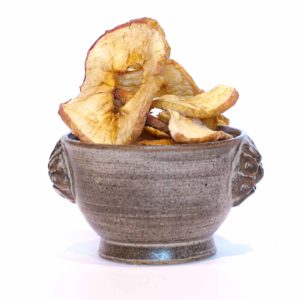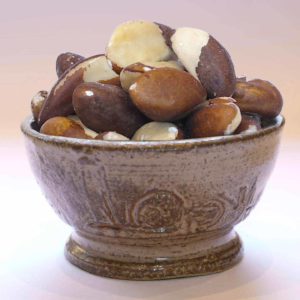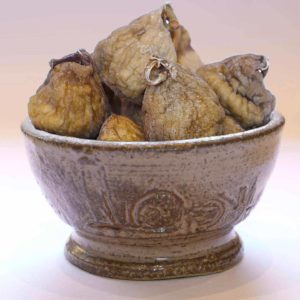0
- ONLINE GROCERY
- OUR HISTORY
- BLOG
- CONTACT
- MY ACCOUNT
- PRO
3,80 €25,00 € /kg
Oleaginous fruit, shelled or trimmed, almonds can be enjoyed as an aperitif (plain and/or pan-roasted and/or lightly salted) or as a snack for children. Whole, they can be added to green or mixed salads, and used to make sauces (pesto, etc.). It also goes well with tagines and meats.
Almonds are an extraordinary source of goodness. They quickly put an end to hunger pangs and reduce bad cholesterol (LDL). Their high mineral content makes our bones stronger. Their phytosterols, monounsaturated fatty acids and vitamins make them the queen of dried fruits. Enjoy them every morning for breakfast, or as an appetite suppressant in the morning or afternoon, almonds can also be enjoyed as an aperitif alongside cashews and other roasted peanuts.
A little history:
The almond tree is thought to have originated in Iran. First brought to Egypt by the Hebrews, the almond subsequently spread to Europe.
A revered fruit of the Egyptian Pharaohs, almonds were also revered in ancient Greece and Rome, as they were considered sacred and fertility-enhancing.
In the Middle Ages, almonds played an important role in meals (mainly milk, soups and desserts), but it wasn't until the 16th century that the almond tree was cultivated in the south of France.
The almond is a shelled fruit, covered by a green, velvety envelope (the husk), which dries and bursts when ripe, revealing a nut. When shelled and dried, almonds have a brown skin.
Properties of almonds
Introduce nuts (plain, toasted or not, with no added salt or fat) into your diet on a regular basis: a small handful a day (around 10-15g), depending on the composition of your meals. This quantity is equivalent to about one tablespoon of oil (lipid content).
From a nutritional point of view, almonds are very interesting for many reasons.
We recommend it...
- everyone: almonds help prevent cardiovascular disease, thanks to their high monounsaturated fatty acid content(1) and lower "bad" cholesterol levels(2).
- children, teenagers and students: ideal when energy requirements are high.
- Pregnant women: it's a source of vitamin B9 (folate), necessary for healthy fetal development.
- athletes: an excellent source of magnesium, manganese and copper, as well as potassium and vitamins B1, B2 and B6, essential for healthy muscle function. Among oleaginous fruits, it is also the champion calcium source.
- Elderly people: almonds are a significant energy source, as they can be added to recipes in small quantities to increase the calorie content of dishes (e.g. mixed salads) and contribute to protein and calcium intake (osteoporosis prevention).
- convalescents: almonds are remineralizing.
- vegetarians, vegans/vegetarians: almonds provide protein, vitamins, minerals (magnesium, manganese, copper, calcium, phosphorus, iron, zinc, potassium, B vitamins, etc.) and polyunsaturated fatty acids (omega-6).
Almonds should be part of a varied, balanced diet.
However, this product is not recommended in the event of :
- food allergies (nuts),
- kidney failure
- intestinal disorders.
Do not give to children under 3 years of age.
How to eat :
For breakfast, sprinkle a few almonds into mueslis and cereals.
For dessert, crushed or whole, use in chocolate mousse,
cookies, cakes, tarts and pear amandines, add a crunch to your fruit salads
and is ideal for making your own plant-based milk (almond milk).
Almonds are also the basis of many oriental pastries.
Tip: To obtain toasted almonds without denaturing the fatty acids, heat them gently in a frying pan for 1 to 2 minutes.
Botany: Prunus dulcis
Origin : Europe
Ingredients : 100% ORGANIC shelled almonds
Quality : ORGANIC
Other names : sweet almond
| Weight | 50 g |
|---|---|
| Weight | 100g pouch, 250g pouch, 500g pouch, 1000g pouch |
| Color | Brown |
| DLUO | Shelf life of 1 year from date of purchase |
| Continent-Country | Europe |




|
L'atelier ferme du 17 au soir au 10 août inclus. Derniers envois le 16 juillet. Vous pouvez cependant passer vos commandes durant cette période pour une expédition dès notre retour. |